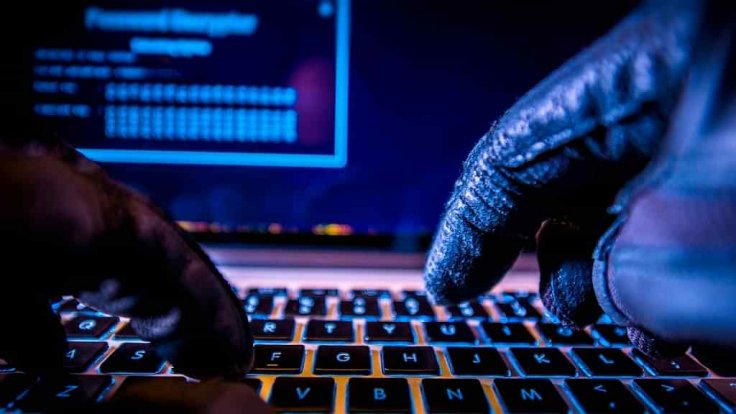In recent times, western countries have often accused Russia of backing hackers for cyberattacks on the U.S., U.K. and their allies. Now, a former British national security officer has claimed that the U.K. too had resorted to secret cyberattacks on Russian interests as a retaliatory action.
Mark Philip Sedwill, who stepped down from his post of chief national security adviser and cabinet secretary last month, said the "series of discreet measures" were used to "impose a price greater than one they might have expected." He added that the target of the attacks was Russia's vulnerabilities that included illicit transactions.
In the last few years, conventional warfare has mostly been replaced with discreet cyberattacks. It reduces fatalities but can cause great harm to the target with just a few lines of codes. Besides Russia, China and Iran have also been allegedly carrying out cyberattacks against the U.S. and its allies.
As per General Patrick Sanders, the British Military had been targeted by 60 cyberattacks every day in September with the most coming from Russia-affiliated hackers. Now, he is tasked with developing Britain's cyberwarfare with both defensive and offensive capabilities.

"Russia is operating in what the aficionados call grey space, that gap between normal state relations and armed conflict, with cyberattacks, information warfare and disruption campaigns," said Sedwill.
'Discreet Operations'
Cyberwarfare is such that hardly anybody comes to know of the attacks until it's too late. But more often than not, governments don't disclose the lengths of the attacks in order to prevent further embarrassment to the agency's cyber defense capability. As for being on the offensive, not many governments confirm the attacks to avert any diplomatic fallout in public. "The fact you don't see that we use it doesn't mean that we don't," Sedwill told Times Radio.
Government Communications Headquarters (GCHQ) led Britain's cyber-offense using custom malware to disrupt Russia's payments system and online activities. Sedwill didn't reveal any more details as it was a covert operation. But it is only the second time that the U.K. has admitted to offensive cyber measures. Previously, the U.K. carried out cyber warfare against the terrorist group ISIS.
"It is important that we are capable of maneuvering in the grey space and doing so effectively. We can't leave the initiative to our adversaries. There are some vulnerabilities that we can exploit too. We just don't always talk about those," he added.

Response to Novichok Poisoning
Sedwill said that the retaliatory cyberattacks were in response to novichok poisonings in 2018 targeting former Sergei Kripal and his daughter Yulia. Sergei was a former Russian military officer but turned a double agent for the U.K. Russian military intelligence agency (GRU) allegedly poisoned them with novichok nerve agent in Salisbury. The U.K. authorities claimed that it was done by two Russian agents Alexander Petrov (aka Dr Alexander Mishkin) and Ruslan Boshirov (aka Colonel Anatoliy Chepiga).
However, Russia has always denied the claims. "We seek to impose a price greater than one they might have expected when we believe it is right and necessary," Sedwill said.
It was not the first time the GRU was held accountable for such attacks. Recently, the U.S. Department of Justice indicted six members of a hacker's group for targeting government networks. They were working for the GRU as per DoJ. The U.K., on the other hand, has also accused Moscow of conducting a string of cyberattacks on the Tokyo 2020 Olympics. The U.K. and the allied intelligence services found that GRU disguised itself as Chinese and North Korean hackers to carry out the "false-flag" attacks, the Independent reported.
The GRU has also been accused of targeting the U.S. Presidential election in 2016 and in 2020 besides hacking into the networks of U.S. Democratic National Convention networks in 2016 and the disinformation campaign during the U.K. elections in 2019, besides targeting Winter Olympics 2018 in South Korea.









